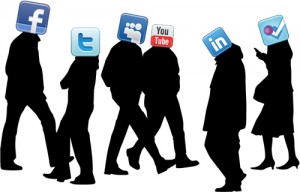 Generation-Y, Net Generation, millennials or whatever you choose to call the generations of IT workers between the ages of 20-30 have gotten a reputation for being tech-savvy, but also a needy, job-hopping generation with a sense of entitlement.
Generation-Y, Net Generation, millennials or whatever you choose to call the generations of IT workers between the ages of 20-30 have gotten a reputation for being tech-savvy, but also a needy, job-hopping generation with a sense of entitlement.
CIO.com talked to industry experts to find out what’s behind these perceptions and to learn how companies and millennials can better work together. After all, an entire generation of baby boomers is easing out of the job market, so the reality is you will have to learn how to hire, manage and promote millennials.
The results revealed that hiring managers are three times more likely to hire a mature worker than a millennial. “Mature workers are associated with being reliable, but many also think they lack technology know-how,” says Diana Fitting, senior vice president of the Engineering & Information Technology and Medical & Science Professional Staffing lines of Adecco Group North America. So why are some companies holding back on hiring younger workers? And what can companies do to embrace the millennial generation?
Current perceptions of millennials
A good place to start is a look at current perceptions of millennials. “Respondents [to the survey] perceive millennials to be tech savvy, but feel that their long-term commitment to a company or hiring managers may be unknown,” says Fitting. Considering this is the first generation to be completely immersed in this digital world from their earliest years, it’s no surprise that this generation would excel with the technology that surrounds them. So aside from that what makes this generation so different?
“Millennials are perceived to potentially have issues taking direction from those older than them, whereas the mature worker may resist input from younger counterparts. This kind of age friction is something to be aware of, because it certainly cuts across the workplace in general. It is also important to note that the millennial IT talent needs more constant feedback and validation on their work than preceding generations,” says Fitting.
Millennials are different: money doesn’t always talk
“When you look at what millennials are looking for in the workplace and you match that up with what qualities make a good workplace, there’s almost a complete match,” says Lauren Rikleen of the Rikleen Institute for Strategic Leadership and Executive-in-Residence for Boston College’s Center for Work and Family. The two qualities that normally top the list are work-life flexibility and meaningful work. “Compensation often times doesn’t make it into the top three with millennials,” Rikleen says.
According to Rikleen, one of the themes revealed in the Rikleen Institute’s research on Generation-Y workers is that they have been far more heavily parented than other generations and this has had a significant impact on how they operate in the workplace. Social media has also made it possible for this generation to collaborate, communicate and share in real-time, making things like annual reviews seem out of touch.
Entice and retain millennials because you have no choice
“Regardless of whether you think they [millennials] are flawed or not, eventually you will run out of [IT workers from] other generations. Companies are going to have to get better at managing individuals with these generational characteristics, “Rikleen says. She also notes that some of the common perceived flaws aren’t necessarily what she considers flaws.
For example, millennials do require more feedback than other generations, but is this a bad thing? Millennials have grown up in a world with a lot of feedback, according to Rikleen, so it’s a little shocking to them when they get into the workplace and don’t get much feedback at all. Some may be getting only an annual or bi-annual review.
Ultimately, Rikleen points out, “People who get more feedback are going to get better at what they are doing because they will learn faster.” Managers should give feedback on a more regular basis. Everyone will benefit, according to Rikleen.
As for being job-hoppers, Rikleen explains, that often times this can be attributed to the lack of feedback and no clear path for advancement. Companies that provide regular feedback, training and development as well as some sort of clear career mapping will do well with millennials–and all generations for that matter.
Implement or at least consider a more flexible work policy. According to recent BLS stats, employees who work remotely work on average an hour longer each day. In that same report, the BLS also stated, “an increasing number of jobs in the American economy could be performed at home if employers were willing to allow employees to do so.”
Rikleen offers a couple of other suggestions for reducing the friction between the generations. One involves training that educates employees on the differences in thinking between the generations.
The other idea is a reverse mentoring program where you use the talents of millennials to work with individuals who have business experience but aren’t necessarily deft at using technology like social media.
Advice to millennials looking for IT jobs
According to the survey by Adecco, the number one mistake made by job-seeking millennials is wearing inappropriate interview attire. Clearly, this is an easy fix with a little advance consideration. “Be aware. Work to combat negative perceptions and play up your strengths,” says Fitting.
“Millennial IT talent needs more constant feedback and validation on their work than preceding generations,” says Fitting. More feedback isn’t an unreasonable request, but remember to balance that with the fact that your boss likely has more than a few other employees, not to mention tasks of his or her own.
Work-life flexibility includes things like social media at work and the capability to work remotely part or all of the time. Although many would agree that the technology is here and that a more remote workforce is where we are heading, this is not necessarily mainstream thinking.
These types of perks are just that: perks. If these are things you absolutely cannot live without, than do your homework and apply only to companies that support this type of culture.
Final word to IT hiring managers
The bottom line is if you create a company culture that listens to, educates and values your employees’ work and contributions you will find it much easier to attract the talent you need regardless of the generation.





